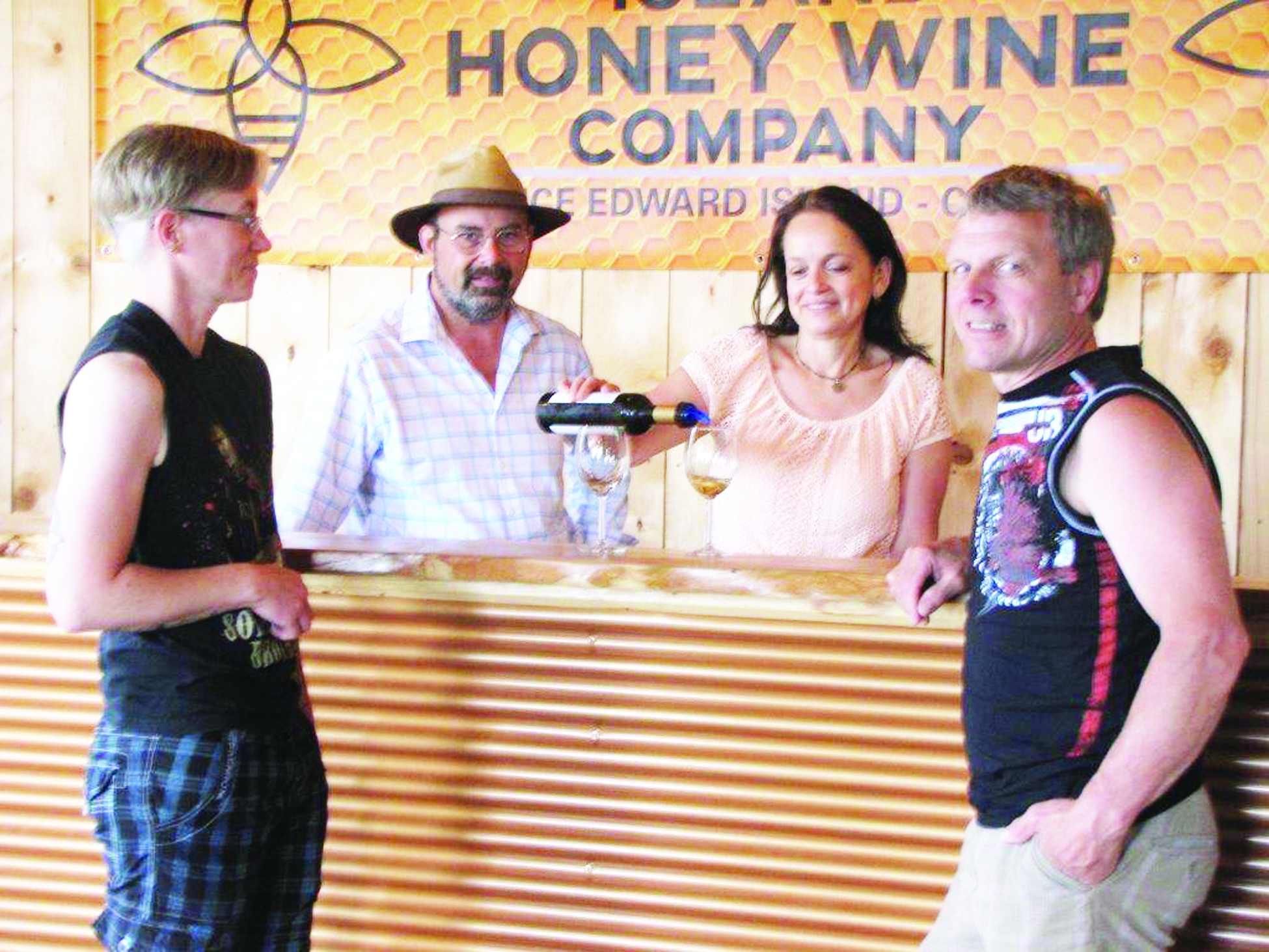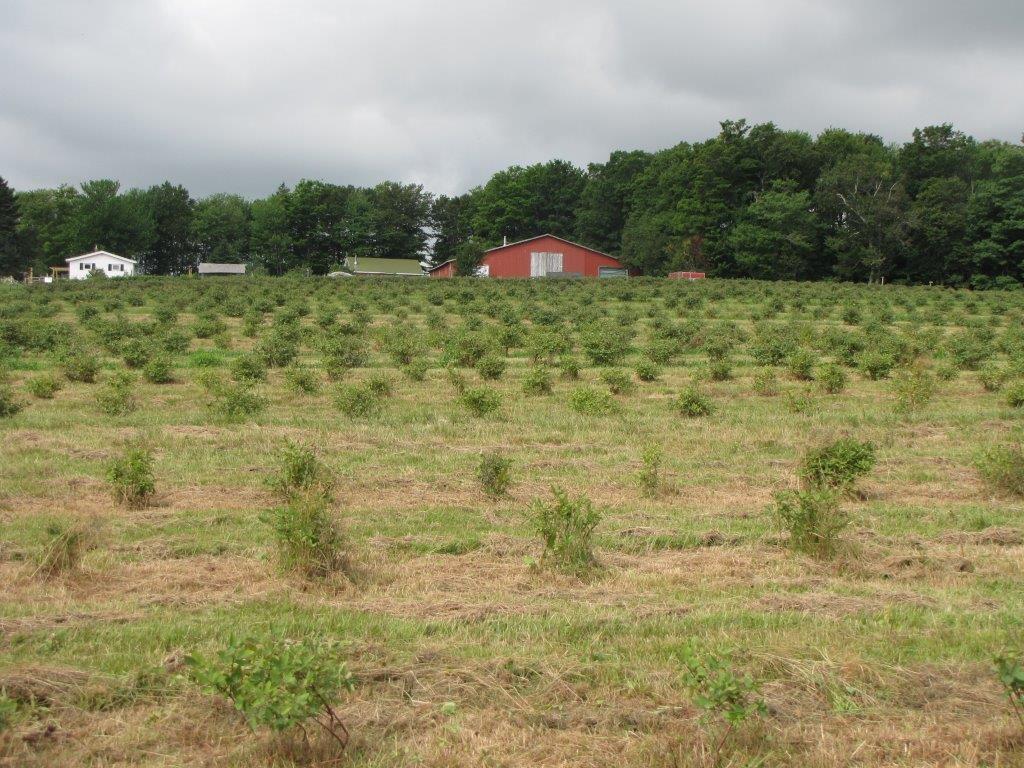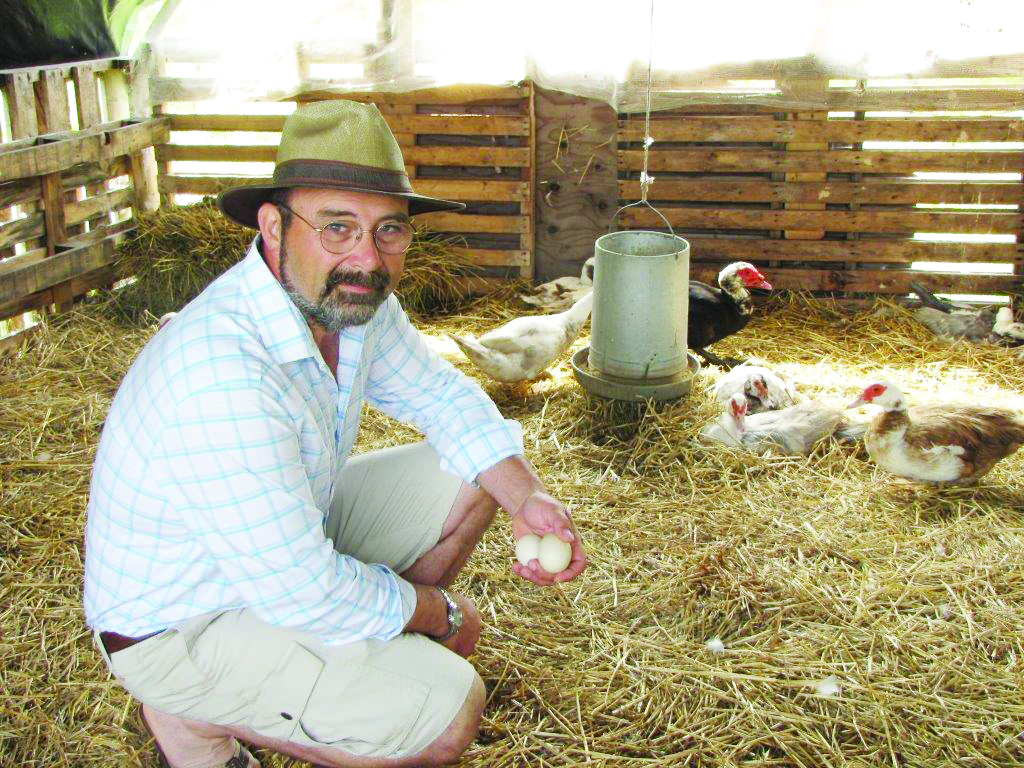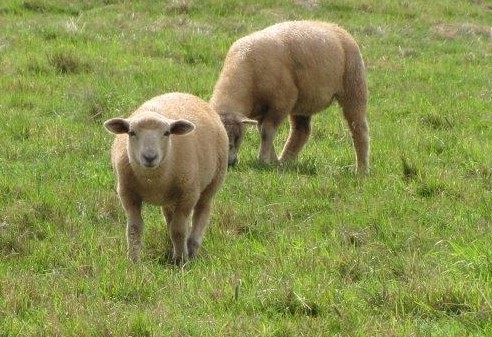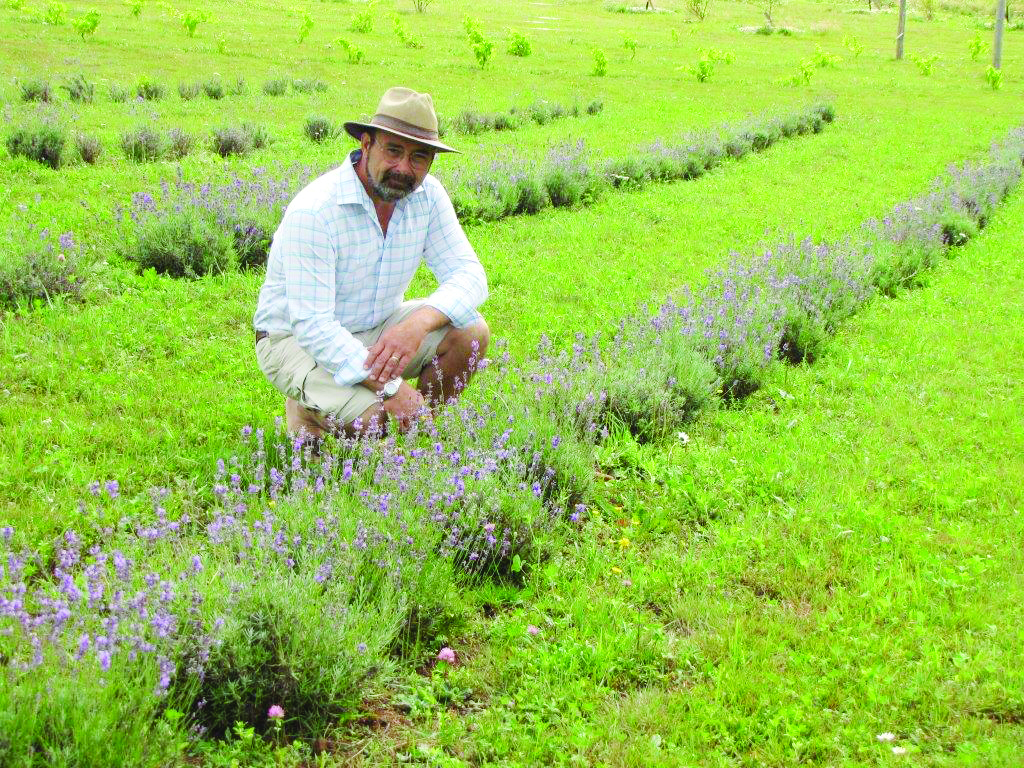P.E.I. farm offers up a mean mead among other products
/by Kathy Birt
While the Island Honey Wine Company on the Millboro Road in Wheatley River, P.E.I., may be off the beaten path, tourists and Islanders alike are beating a path to the door of the operation’s on-farm retail store to taste the subtle but delectable honey wine historically known as mead.
With a wildflower flavour that has the customers wanting more, Charles and Laura Lipnicki of Ontario have worked and nurtured their 56-acre mixed farm to make it a successful and busy property after just five years.
Charles said he and Laura became acquainted with Wheatley River when they were driving around and decided to attend a blueberry pancake breakfast at the local community hall. “We went in and the people were so nice,” he said, adding that he and Laura mentioned they were looking for a rural property and found out there was a widow in the area looking to sell.
“The property was just what we were looking for,” said Charles. “It has southern exposure with a river running around it and it had been organic for seven years.”
Laura added, “Because it was already organic, we were able to get immediate certification.”
The couple knew it would take some time to get established. They started off growing haskap berries and lavender. Both crops take three to four years to reach the harvesting stage. Now with those years behind them, the Lipnickis are using dehydrated haskap berries to make jam and an antioxidant powder. The antioxidant powder is sold in 50-gram packages and Laura noted they enjoy it as an addition to smoothies, yogurt, and hot and cold tea. They’re also producing haskap mead, a popular item in the retail store.
The haskap berry adapts well to the Island soil. It tends to flourish in partly shaded locations with wet, clay-like soil.
They have 1,500 lavender plants, and they make lavender soaps, hand creams, cookies, and mead.
MORE THAN HASKAP AND LAVENDER
But growing haskap berries and lavender is not where Laura and Charles draw the line. They have 46 Muscovy ducks, 30 sheep, 15 beehives, 140 heritage apple trees, and have branched into other berries, such as elderberries, as wells as rhubarb and grapes.
The sheep serve the couple well, mowing the grass between the rows of haskap berries and between the lavender plants.
The ducks take care of the pests in the apple orchard where historical varieties of apples are grown. “These apples would not be common in commercial orchards,” said Charles, adding that the trees came from a Mennonite nursery in Ontario. “What we plan to make is apple cyser – a blend of apples and honey.”
The different crops were well planned. This gives the farm and retail store an ongoing supply of a variety of fruits to combine with the honey and add new tastes as time goes on. It will be at least two years before the apples will be ready for picking.
Charles said apples have a scent that has some interesting history behind it, but for the Lipnickis, “It’s the flavour we are after. That’s what makes good apple cyser.”
During the summer, when the mead store is busy, they hire some help to look after the plants and animals.
The Muscovy ducks they are raising came from Herbert MacDonald in Bonshaw and their haskap plants were acquired from Phytocultures Ltd. in Clyde River. This is a testament to the fact that Laura and Charles have become well-known around the Island and settled right into the Island way of life.
They eat the eggs from their ducks and eat the ducks in the fall. The wool from the sheep is spun into yarn and dyed with natural dyes made from the haskap berries. Enjoying the neighbourly area in which they live, the couple farm out the work of making the yarn into purple toques, which they sell.
MAKING MEAD SEEMS NATURAL
“I have a background as a pastry chef and was always fascinated with the yeast process,” said Charles, adding that he used to help his mother make bread as a child. He later made beers and wines as a hobby, so making mead is a natural fit for him. Laura’s background as a buyer in the tough aerospace industry has been easily transferable to planting, growing, and selling in their retail store with her husband.
Never having enough honey from their 15 hives, the Lipnickis are able to work with 460 other hives owned by various beekeepers around the Island. “The honey is harvested in September and has only one flavour – wildflower,” said Charles. “It’s a complete flavour from the flowers the bees touched throughout the season.”
Among the lavender, apple orchard, and haskap for the bees to pollinate is buckwheat, goldenrod, and a hedge of lilacs.
On the animal side of things, Charles pointed out that they butcher in the fall and give some meat to family and friends. Because the sheep have to be taken care of year-round, they are boarded at a farm in Hope River. “We share the meat in exchange for winter board,” he said.
While selling mead in the retail store – along with other farm spinoffs – is what this couple wishes to keep on doing, they capitalized on their success and took their popular mead to a wine competition in Virginia, winning three medals, having garnered the highest points for a dessert wine. That win was over entries from Mexico, India, the U.S., and Canada. They also won two bronze medals in a Canadian competition in Penticton, B.C., for their haskap and lavender meads.
Charles pointed out that 90 percent of what goes on the table at the end of the day, including a fine bottle of mead, comes from the farm. “The satisfaction when opening a bottle of mead can only be imagined by those who have grown the crops and made the mead from scratch,” he said.
